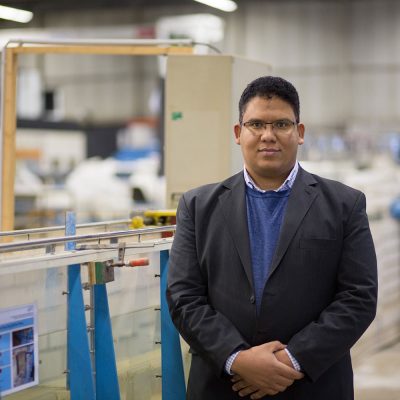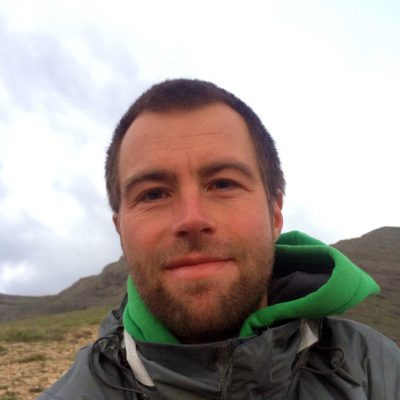Opening doors for young researchers An interim review of the Early Career Grants and the Agnes-Pockels Fellowships
Young scientists in Germany do not have an easy time. As a general rule, they work in a highly competitive environment on temporary projects – permanent positions are rare. At the same time, universities compete for outstanding scientists. Three years ago, the Early Career Programme and Agnes-Pockels Fellowship were introduced at the TU Braunschweig. They specifically support young scientists in their early career phases. One of the main initiators and two young researchers talk about their experiences.
Professor Rolf Ernst is spokesman of the DFG network at the TU Braunschweig. The scientists involved in the network – all with many years of experience in applying for third-party funding from the German Research Foundation (DFG) – advise both the Executive Committee and applicants on research funding. The programmes for the promotion of young scientists originate the network. “The aim of the Postdoc Career Grants and the Agnes-Pockels Fellowships is to support promising young researchers in the best possible way and accompany them into self-employment,” he says. The Postdoc Career Grants are aimed at young researchers, preferably directly after their doctorate. Postdocs can carry out research with the appropriate funding and prepare their own initial third-party funding application to the DFG.
An extra incentive for particularly good performance

Dr.-Ing. Saber M. Elsayed is the first PostDoc Career Grantee at the TU Braunschweig. Picture credits: Jonas Vogel/TU Braunschweig.
The first postdoc to obtain such a grant for outstanding achievements is Dr.-Ing. Saber M. Elsayed. As Research Associate at the Leichtweiß Institute of Hydraulic Engineering, he investigates the effects of storm surges on coasts and groundwater. After starting his studies and gaining his first professional experience in his native Egypt, he completed his master’s degree at the Polytechnic University of Milan. He received his doctorate at the TU Braunschweig. His project “Reaction of Coastal Barriers and Freshwater Aquifers to Extreme Storm Surges and Floods (ReFresh)”, which he was able to apply for with the support of the grant, is now being funded by the DFG with approximately 350,000 euros.
Looking back, he also praises the ideal support provided by the DFG network. “Financing one’s own position is often a challenge for junior researchers in the science system. At the TU Braunschweig, the prospect of a Postdoc Career Grant is therefore an extra incentive for many. At the same time, there is still a lack of experience in applying for one’s own projects in the early career phase,” he says. “During this time, financing was not the only important thing for me. My mentors from the DFG network also helped me extremely to be successful in the end. They proofread the application and gave me valuable tips.” In the next step, Elsayed would like to raise additional third-party funding for his own research group at the TU Braunschweig.
Networking with the “old hands”
What next? “The fact that these extraordinary young people will ultimately stay at the TU Braunschweig is not our goal,” says Rolf Ernst. “Of course, if everything goes well, they will get a reputation or another highly qualified position. This in turn strengthens our good reputation in the world and strengthens our networks”.
Cooperation is also close to Saber M. Elsayed’s heart. “Only if we share our knowledge and experience across disciplines and institutions will we have no chance of managing the impact of climate change on our coastal zones,” he says.
Competition for the brightest minds
Carolo-Wilhelmina is not alone in promoting young scientists. Other universities have also seen the need for action, not least addressed by the so-called Imboden Commission as part of the evaluation of the Excellence Initiative 2016, and have launched programmes. “We are in competition for the brightest minds,” explains Rolf Ernst.
In comparison, the TU Braunschweig represents a particularly progressive line. “The principle of independence is very important to us. As soon as they have succeeded in recruiting an externally peer-reviewed junior research group, our junior researchers are consistently granted the right to award doctorates in their field of work. We want to bring our young colleagues into scientific responsibility as early as possible – and that also means personnel responsibility here – and thus create strong incentives”.

‘Selfie’ in nature. Matthias Beyer enjoys being outdoors and sees field research as an essential basis for scientific work. Picture credits: Matthias Beyer/BGR
Dr.-Ing. Matthias Beyer heads the junior research group Water Isotopes Soil-Plant Atmosphere at the Institute of Geoecology (Professor Harald Biester). He had already obtained a free-spirited fellowship from the Volkswagen Foundation at the TU Braunschweig when he heard about the Agnes-Pockes Fellowships during an interview. They are intended for junior researchers who have already recruited independent, third-party-funded junior research groups in highly competitive programmes. Are the additional funds even helpful in this phase? “But of course,” says the hydrologist. “They were absolutely important for me to establish myself here.
Flexible additives for top equipment
The free-spirited proposal was his first proposal, and immediately a very large one. With the funds his junior research group and a water isotope laboratory could be established. “We are investigating deep-rooted plants and their role in the water cycle as well as their interactions with the water cycle,” he explains. “Our project is planned to run for five years. As is often the case with field research projects, additional expenses were necessary that could not have been foreseen.
The Agnes-Pockels Fellowship enabled us to hire auxiliary staff and complete our laboratory.” Even more: The team is working with a drone that delivers high-resolution geodata, among other things. “What we didn’t calculate was an additional camera for the drone. In addition to the original infrared camera, we were able to purchase a multispectral camera that enables us to draw completely new conclusions about the metabolic processes of plants and the derivation of soil parameters. The equipment is now tailor-made for us and forwards our research significantly. It’s great that we can use the university funds so flexibly.” For Matthias Beyer, the financial resources are only one aspect of the funding. Reporting on the fellowships and his project opened doors for him to the institutes. “As a result, my colleagues already knew something about who I was and what I was up to,” he says.
On to the next application
As the first applicant, the framework conditions for the Agnes-Pockels Fellowship were not quite clear to him. “We simply sat down and wrote down what would fit. However, clear guidelines and established workflows were useful for him and other candidates. And: The programme could definitely be made more public inside and outside the TU Braunschweig, says Beyer. It makes the university attractive for junior staff and could also be a criterion for staying in the region. The hydrologist can well imagine continuing his career even after the fellowships at the TU Braunschweig have expired. However, he does not yet want to commit himself. The next step will involve further third-party funded projects. “We have now submitted a new application to the BMBF – another new experience. The colleagues from the Research Service have helped me a lot in this process.
